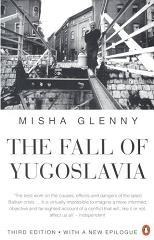So Jonah Goldberg, the cheetos munching spawn of Lucianne, has actually managed to complete his magnus opus Liberal Fascism: from Mussoline to Muscle Beach, showing us how no really, it wasn’t the fascists that were fascists, it was the liberals! Since it came out David Neiwert has, as usual, done a sterling duty in calmly explaining how and why Goldberg is talking cock, but of course without leaving any impression on the man himself. Goldberg knows it doesn’t matter what David says or how carefully he explains he’s wrong, as his audience will never see nor (want to) understand David’s arguments. As long as the message of “liberals = Fascism!”is out there, Jonah has done his job.
Which is why the important point David makes is not that Jonah is wrong, but that he is just another kind of Holocaust denier:
Goldberg is much offended, of course, that I’ve compared his work to David Irving’s in this regard, saying “he tries ever so slightly to tag me as a member of the David Irving Holocaust-denier camp.” But that, of course, isn’t what I’m saying at all: Rather, my point is that he employs the same historical methodology as Holocaust deniers, which is rather a different thing. I once made a similar point about Michelle Malkin’s methodology in her book In Defense of Internment — and predictably, as Jonah did, she simply tossed it off as a “smear” rather than answer the point.
what Jonah does is just as offensive, morally and factually wrong as denying that the Holocaust has happened. He distorts history to make the victims of fascism into their own oppressors, just like some Holocaust deniers blame the Jews for their own persecution. Therefore it is not possible to get into a “reasonable debate” with Goldberg, nor should we want to. Instead he should be shunned and mocked for his beliefs. Wasting time refuting his arguments just helps establishing the idea that his opinions on this are respectable, if wrong in its particulars.
This is not the impression anybody who is serious about history, who is serious about fascism, whether liberal, conservative or socialist, should want to encourage. Already the idea of what fascism was and is has been diluted by overuse as a general purpose insult. Imprinting the belief on the general public that it’s the liberals who are the true fascists, or even the idea that this is a reasonable thing to believe means we can give up any hope of being able to use fascism in its true meaning. And that’s just what Jonah Goldberg would like to happen.
